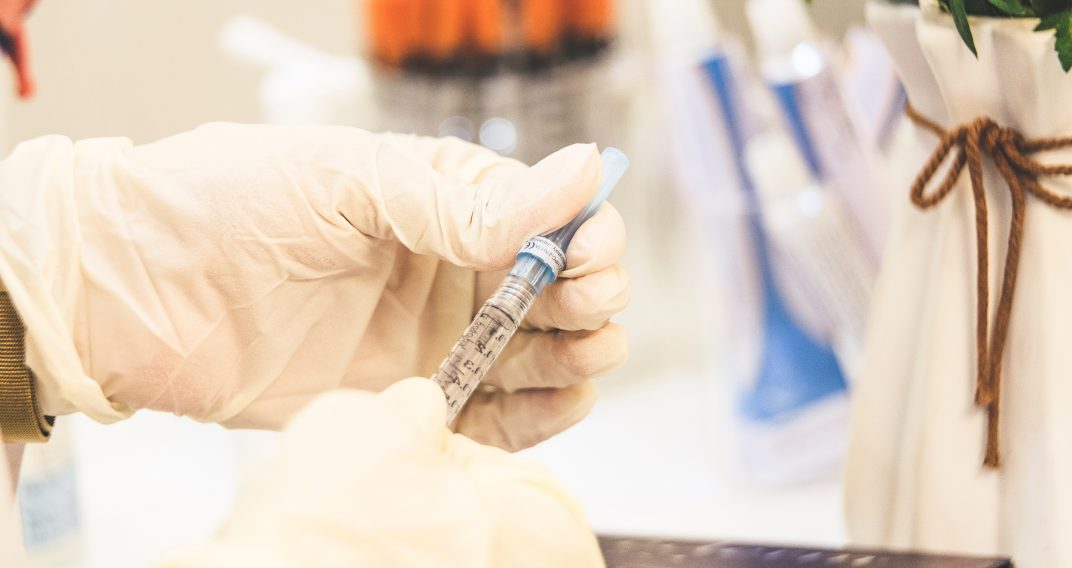Our Take: Pfizer, BioNTech nab first FDA authorization of a COVID-19 vaccine
Late on Friday, the FDA issued its first emergency use authorization (EUA) for a vaccine to prevent COVID-19 to Pfizer and the company’s German partner, BioNTech, making the U.S. the sixth country to authorize this particular vaccine, according to The New York Times.
The EUA allows the vaccine to be administered on a widespread basis to individuals who are at least 16 years old. Two doses are required, administered three weeks apart.
Pfizer was prepared to begin shipping the first batch of about 3 million doses immediately, which means that many health care workers and seniors in skilled nursing facilities are likely to be vaccinated this week.
The FDA’s decision followed the overall favorable vote on Thursday by an advisory committee to recommend the vaccine’s authorization. The panel of outside experts voted 17-4 in favor of recommendation, with one abstention, The Associated Press reported.
The authorization was based on clinical trial results that included an analysis of 36,523 participants in an ongoing study. Roughly half of the participants received the vaccine and the remainder received placebo. The vaccine demonstrated 95% efficacy in preventing COVID-19, with eight participants in the vaccine group and 162 participants in the control group contracting the disease. Of those cases, one in the vaccine group and three in the control group were deemed severe.
“At this time, data are not available to make a determination about how long the vaccine will provide protection,” the FDA stated in its authorization notice.
As Pfizer mentioned in a press release, severe allergic reactions have been reported after mass vaccination began in other countries that authorized the vaccine, prompting the company to caution against administering it to those “with known history of severe allergic reaction (e.g., anaphylaxis) to any component” of the vaccine.
Pfizer and BioNTech will continue to clinically evaluate their vaccine, which is based on BioNTech’s proprietary mRNA technology, with an eye toward filing a Biologics License Application for full approval in 2021.
Pfizer’s agreement with the federal government is for the company to supply 100 million doses of the vaccine by March. That would be enough to vaccinate about one-fifth of the adult population. The company advised officials that it would not be able to supply a substantial amount more than that until late June or July, The Washington Post reported.
Separately, on Saturday, various news outlets reported that the U.S. government had purchased an additional 100 million doses of Moderna’s vaccine, doubling the amount it originally agreed to buy earlier in the year. The reported cost for all 200 million doses is $3.2 billion. The FDA’s vaccines advisory committee is scheduled to meet on Thursday to discuss Moderna’s EUA request.
Several other industry-relevant COVID-19 announcements were made recently, including the following:
- UnitedHealth Group and Eli Lilly said they are collaborating on a study to assess at-home infusions of Lilly’s bamlanivimab in patients with mild to moderate symptoms of COVID-19 who are at high risk for progressing to severe symptoms and/or hospitalization. The FDA just recently issued an EUA for use of the drug in this patient population. UnitedHealth will enroll as many as 500,000 Medicare Advantage members with COVID-19 in the study, and at least 5,000 of them are expected to receive the drug.
- CVS Health said the Department of Health and Human Services selected the company’s Coram infusion care business unit to participate in a pilot program in which Coram will administer bamlanivimab to patients at home or in long-term care facilities.
- The U.S. government purchased another 650,000 doses of bamlanivimab for $812.5 million, which are to be delivered through the end of January. The government paid $375 million for 300,000 doses of the drug in October.
- The FDA authorized the first direct-to-consumer COVID-19 test system. Adults can use LabCorp’s Pixel home collection kit to take a nasal swab sample and send it to LabCorp for testing. The kits can be bought online or at the store without a prescription.
- The FDA also authorized the first at-home combination COVID-19 and flu test. The PCR test is made by Quest Diagnostics and requires a prescription.
The vaccine’s need for ultra-cold storage — it has to be stored at approximately -90 degrees Fahrenheit to avoid degradation of the mRNA — poses numerous logistical challenges.
AstraZeneca will acquire Boston-based Alexion Pharmaceuticals in a cash and stock deal valued at $39 billion. According to a joint press release, the boards of directors of both companies have unanimously approved the acquisition. “Alexion has established itself as a leader in complement biology, bringing life-changing benefits to patients with rare diseases,” said AstraZeneca CEO Pascal Soriot. “We look forward to welcoming our new colleagues at Alexion so that we can together build on our combined expertise in immunology and precision medicines to drive innovation that delivers life-changing medicines for more patients.” The deal is subject to customary regulatory approvals and is expected to be completed in Q3 2021.
Tenet Healthcare will pay approximately $1.1 billion in cash to buy majority interests in up to 45 ambulatory surgical centers (ASCs) from Towson, Md.-based SurgCenter Development. Tenet subsidiary United Surgical Partners International will operate the ASCs, which are located in nine states. Tenet stated in a press release that it will fully acquire SurgCenter Development’s interests in the ASCs and partially acquire interests in the ASCs from physician partners. The Dallas-based health care services company has already completed most of the acquisitions and expects to complete the rest by the end of the year, pending state approvals.
Broken promises: How Medicare Part D has failed to deliver savings to older adults. NEJM, 12.10.20


